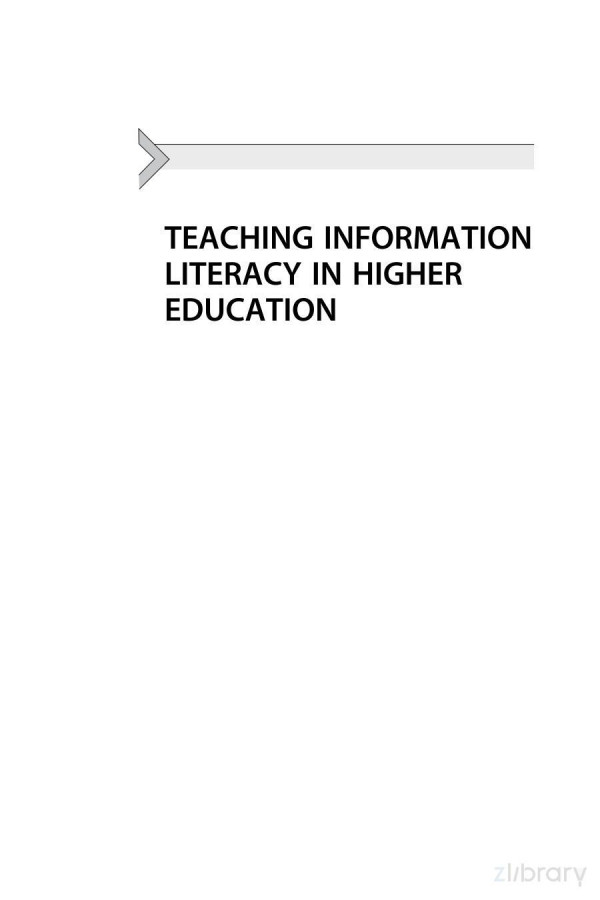

Most ebook files are in PDF format, so you can easily read them using various software such as Foxit Reader or directly on the Google Chrome browser.
Some ebook files are released by publishers in other formats such as .awz, .mobi, .epub, .fb2, etc. You may need to install specific software to read these formats on mobile/PC, such as Calibre.
Please read the tutorial at this link: https://ebookbell.com/faq
We offer FREE conversion to the popular formats you request; however, this may take some time. Therefore, right after payment, please email us, and we will try to provide the service as quickly as possible.
For some exceptional file formats or broken links (if any), please refrain from opening any disputes. Instead, email us first, and we will try to assist within a maximum of 6 hours.
EbookBell Team

4.7
46 reviewsWhy do we teach information literacy? This book argues that the main purpose of information literacy teaching in higher education is to enhance student learning. With the impact of new technologies, a proliferation of information sources and a change in the student demography, information literacy has become increasingly important in academia. Also, students that know how to learn have a better chance of adapting their learning strategies to the demands of higher education, and thus completing their degree.
The authors discuss the various aspects of how academic integrity and information literacy are linked to learning, and provide examples on how our theories can be put into practice. The book also provides insight on the normative side of higher education, namely academic formation and the personal development process of students. The cognitive aspects of the transition to higher education, including learning strategies and critical thinking, are explored; and finally the book asks how information literacy teaching in higher education might be improved to help students meet contemporary challenges.